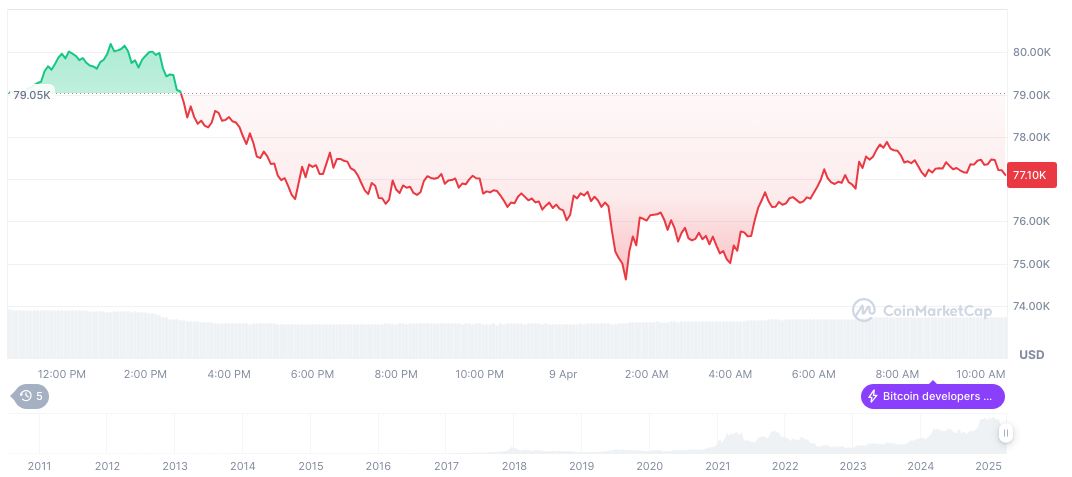- Significant gains in European stock futures following Trump’s tariff suspension.
- U.S. policies positively affect global financial markets.
- Macroeconomic stabilizing measures spur investor reactions.
European stock futures surged as a result of a tariff suspension authorized by U.S. President Donald Trump, demonstrating the significant impact of U.S. policy changes on global financial markets.
Euro Stoxx 50 Index futures rose 7.8% on April 10, 2025, marking potential record gains since March 2020. Germany’s DAX Index futures improved by 7.7%, while the UK’s FTSE 100 Index futures increased by 5.23%. Markets reacted favorably to the policy change, showcasing the interconnectedness of financial markets worldwide and boosting investor confidence, especially within the banking sector.
Euro Indices Climb after 90-Day Tariff Suspension
U.S. President Donald Trump announced a 90-day tariff suspension, a decision seen as a strategic move to ease global market tensions. “The suspension of tariffs is a crucial step to ensure stability in global markets,” remarked Trump. Consequent positive shifts in European stock indices underscore the interconnectedness of financial markets worldwide. Euro Stoxx 50 increased by 7.8%, its largest rise since March 2020. Germany’s DAX Index also surged by 7.7%, showing potential signs of economic recovery.
Immediate implications of these policy adjustments include enhanced investor confidence in European markets, particularly in the banking sector. Eurozone Banks Index futures saw a 10.6% rise, indicating sector resilience. The FTSE 100 gained 5.23%, as market stabilization efforts by European governments played a crucial role.
Market reactions were swift, with institutional investors recognizing the reduced geopolitical uncertainty as an opportunity to reposition portfolios. Although explicit reactions from European Central Bank officials are limited, monetary easing aspects likely influenced financial sentiment positively.
Bitcoin Rallies 6.57% Amid Market Upturn
Did you know? Similar market recoveries were noticed in March 2020 when European markets benefited from coordinated central bank interventions during early COVID-19 challenges.
According to CoinMarketCap, Bitcoin (BTC) recorded a 6.57% price increase in 24 hours on April 10, 2025, amid broader market rallies. BTC’s current price stands at $81,989.02, with a market cap of $1.63 trillion. Despite recent gains, Bitcoin’s 90-day movement shows a decline of 12.75%. These fluctuations highlight the indirect effect of traditional market changes on digital assets.

Coincu research team notes potential regulatory focus on market stability, driven by recent policy shifts. Expert opinions suggest cautious optimism, as macroeconomic policies aim to balance inflation targets and market growth.























